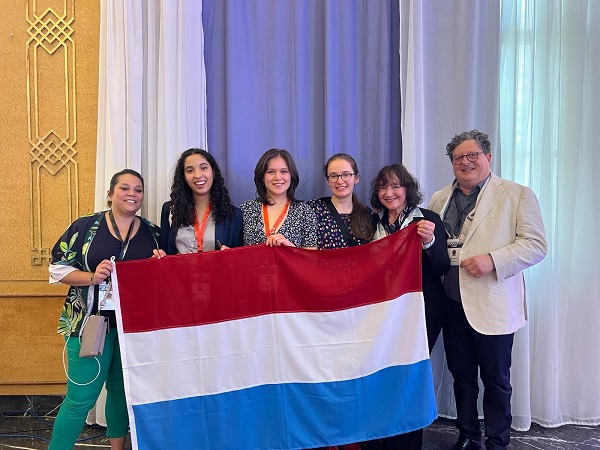 Credit: FJSL
Credit: FJSL
The Fondation Jeunes Scientifiques Luxembourg (FJSL) has reported that young researchers from Luxembourg recently received medals at I-FEST², the International Festival of Engineering Science and Technology in Tunisia.
This major event in the world of informal science education on the African continent brought together about 250 participants aged 14-24 from some 40 countries, who competed in eight categories: computer science, business and social science, physical science, environmental science, life and biology, mathematics, engineering, and multimedia.
Luxembourg was awarded silver medals and an honourable mention for three young researchers supported by FJSL: Paula den Otter (19), Alexandra Senn (19) and Séléna El Hafidi (17).
FJSL noted that these winning research projects had been selected almost a year earlier in the "Jonk Fuerscher" 2023 contest and once again impressed the jury in Mahdia, Tunisia, with their "precision, originality, clarity and scientific rigour".
Paula and Alexandra won silver medals for their work entitled "How do certain lifestyle factors of university students affect the prevalence and location of back pain?" They carried out a statistical study of the back pain experienced by their fellow university students, in order to encourage them to change their behaviour and adopt better positions. This study was conducted with the help of a third student, Arvidas Anderson (20), who was unable to travel to Mahdia.
Séléna received an honourable mention for her comprehensive review of the specialised literature on early breast cancer diagnosis, entitled "Methods for detecting Telomerase in breast cancer diagnosis".
This positive performance at I-FEST² 2024 was accompanied by the signing of a symmetrical exchange protocol between a representative of AFAST (the Tunisian Association for the Future of Science and Technology) and FJSL President Carlo Hansen. From now on, Tunisian students ranked highly in I-FEST² will have the opportunity to take part in the Luxembourg International Science Expo (LISE), a non-competitive fair for young scientists that attracts around 100 eminent budding researchers from the four corners of the globe to the Grand Duchy every autumn.









